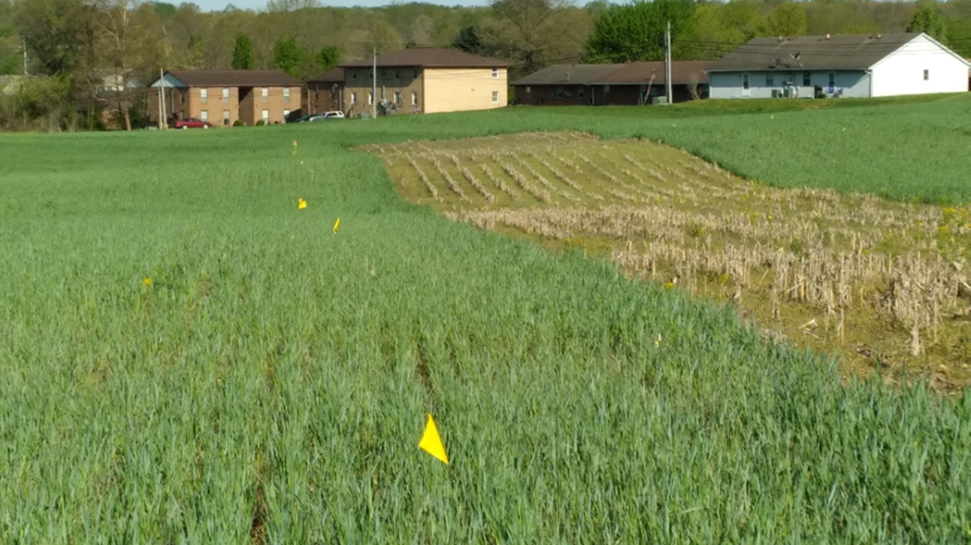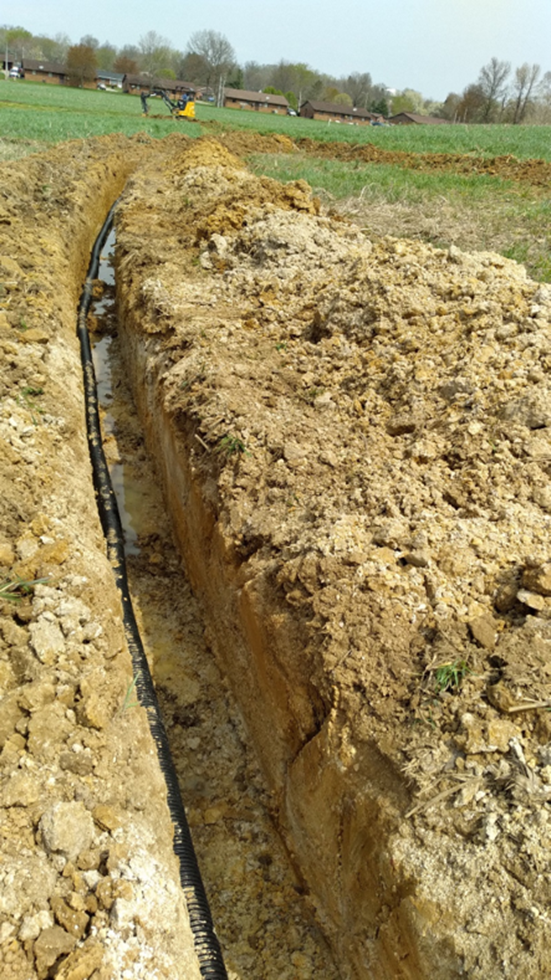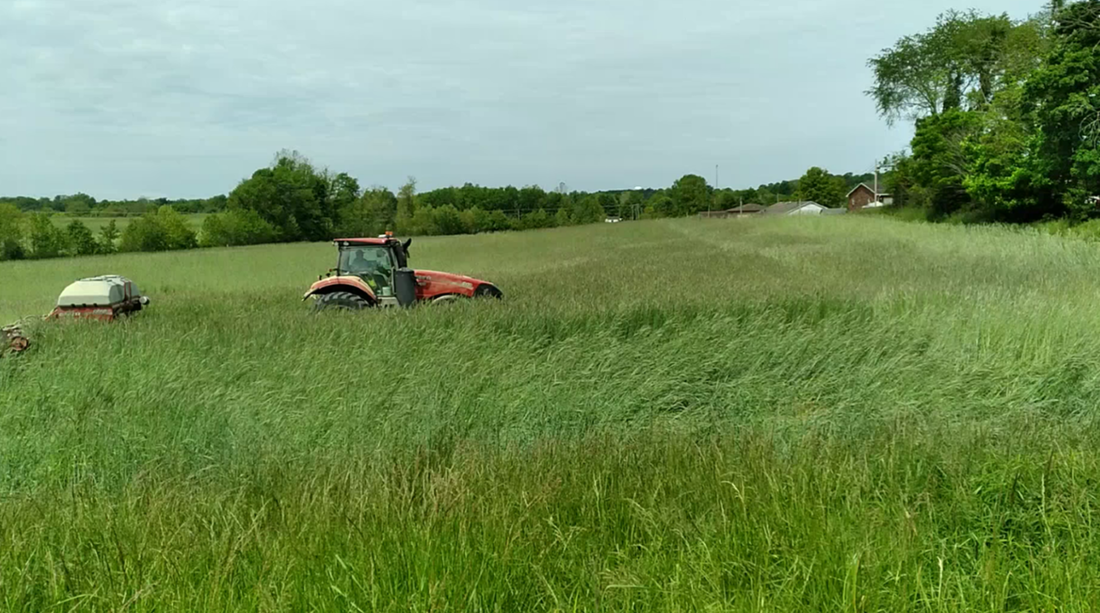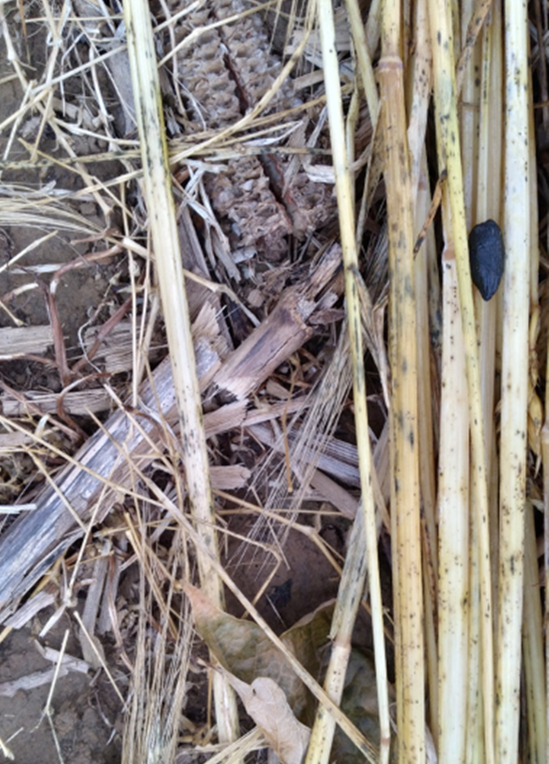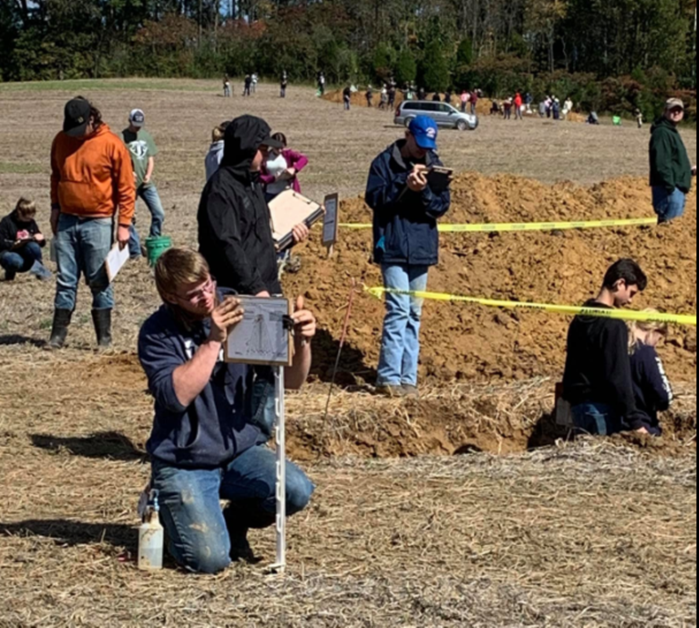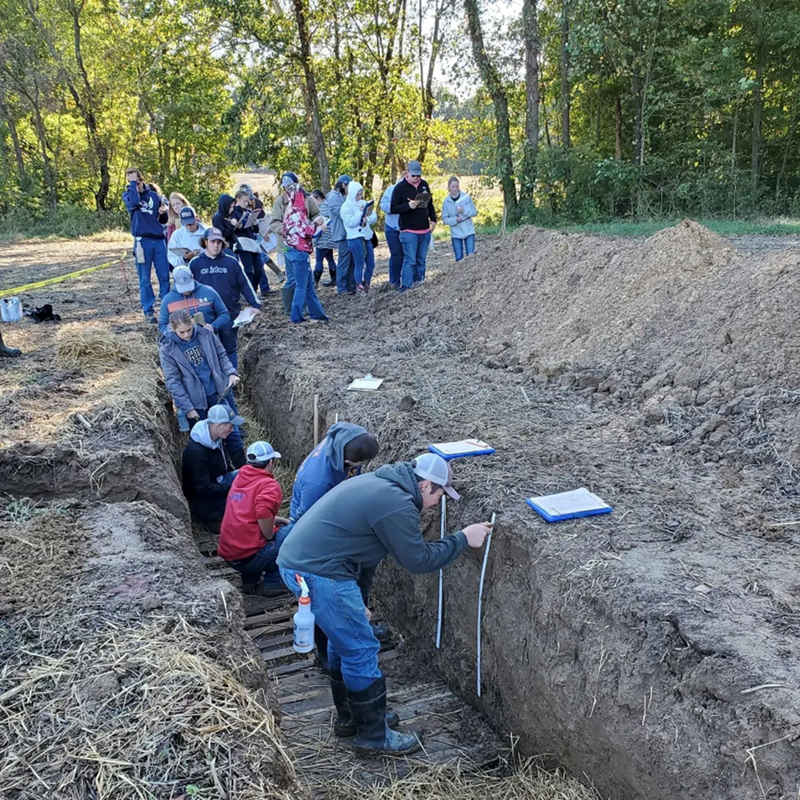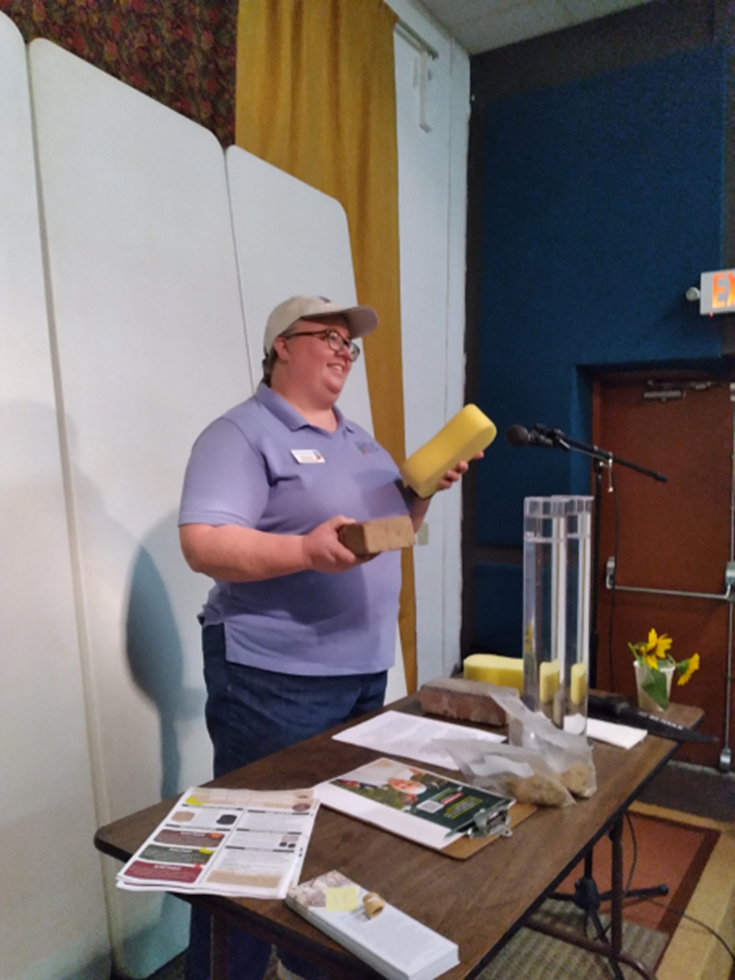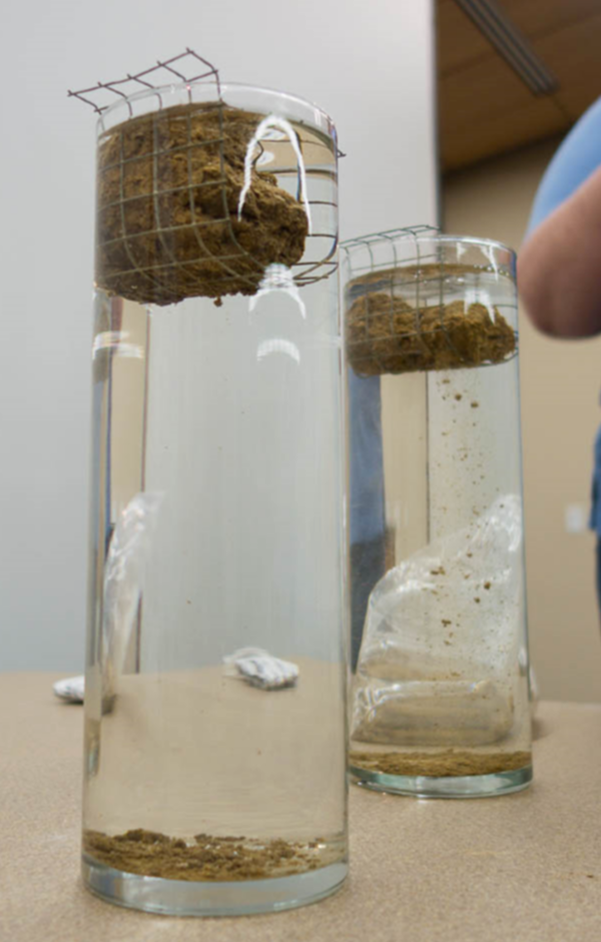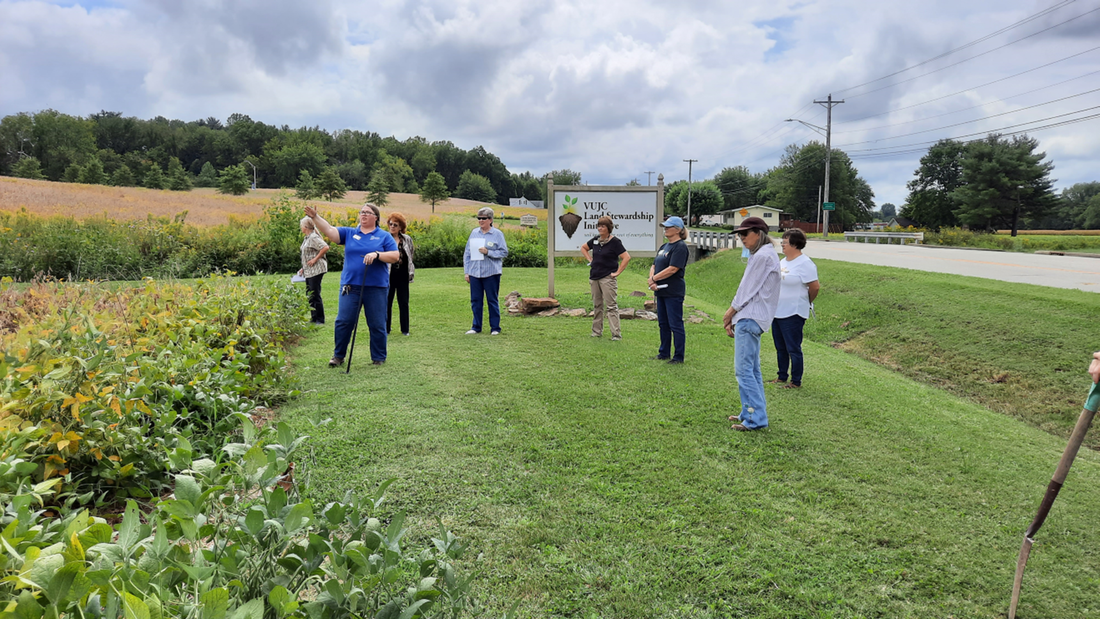| 2021 Annual Report | |
| File Size: | 4669 kb |
| File Type: | |
Notes From The Field
|
In the spring, the entire property received lime and potash. Tile line was added in field 7 near Meridian Road to alleviate a wet spot. Also, the width of the tilled strip in Field 2 was expanded. A 40 foot strip was established at the beginning of the LSI project to be able to compare soil health and crop yields under two different management practices (no till with cover crops and continuous till) The farmer who plants our cash crops upgraded his equipment recently, as a result, an additional 10 feet was added to each side of the strip increasing its width to 60 feet.
The larger planter allowed us to evaluate the turns in field 7, reincorporate land into the cash crop rotation, and allow new ground to remain fallow. In 2012 VU built a state of the art classroom building on campus- some of the top soil from the farm fields was removed to amend the soil for the construction site. An acre and a half portion of the disturbed ground was removed from production and planted with stands of species to rebuild soil health and soil organic matter. Half an acre of this 10 year ‘set aside’ land was returned to production this year and the results were a success. Manure was applied to the remaining acre as well as a small amount of land that was removed from production. This will increase organic matter in the area and improve biological diversity. |
Above: Tile line in 7
Left: Yellow flags mark the new line for the larger tilled strip. |
|
2021 also saw LSI moving to planting ALL of the acres “green”. This means that soybean seeds were planted into live, standing, growing cover crops which were terminated after the cash crop was in the ground. The ag committee experimented with planting green and roller crimping one field in 2019. In 2020, they attempted the same planting green practice in the same field. With 16 acres having been planted successfully over two years, the committee felt confident enough to apply the technique to ALL 46 acres. With the extra residue, the emerging bean crop did experience a small amount of slug damage. The soybean crop bounced back from this and overall yield was consistent with past year's results.
|
In October, the State Soil judging contest was held in the fields at VUJC. 8 soil pits were dug and over 300 4-H and FFA students came to the LSI farm to evaluate the soil. This was an exciting and successful day.
Education and Demonstration
COVID and all of the in-person restrictions that were in place at the beginning of the year allowed our outreach and education efforts to expand in new directions. We created a virtual lunch and learn series and held four sessions during the month of February. Participants from Dubois County and around the state learned how to assess soil health, heard from local farmers implementing these practices, learned the changes that have been seen in soil health from the last 10 years on the LSI farm, discovered resources (both technical and financial) available to implement these practices on their own land. Recording of the entire series can be found on the Dubois SWCD Youtube Channel.
|
|
|
|
|
|
Resource Specialist, Melissa Ruschau had the opportunity to speak with over 125 people about soil health prior to watching “Kiss the Ground”. The film explains regenerative ag and is available on Netflix or a copy can be borrowed from the SWCD office. Ruschau demonstrated the slake test and spoke about the carbon cycle and soil needs to function more like a sponge than a brick. After watching the film, participants shared ideas and perspectives sparked by what they learned.
A dozen local women attended a Women4theLand learning circle. The ladies discussed the valuable resource which is their land and the importance of soil health. Following lunch, the group toured the LSI farm fields, saw practices that have been implemented to promote soil health, and got to experience firsthand how a healthy soil feels.
The SWCD now owns a soil health testing kit, which was funded through a grant from Clean Water Indiana. County residents can request an on site soil health assessments for their farmland or garden plot. Melissa Ruschau is available to come to your property and help you evaluate your soil health. This testing includes: water infiltration rates, compaction areas, soil pH, aggregate stability and cation exchange capacity. She will give you some recommendations on practices that can be implemented to alleviate zones of concern.
Please contact the SWCD office 812-482-1171 ext 3 if you would like to schedule an assessment in 2022.
Please contact the SWCD office 812-482-1171 ext 3 if you would like to schedule an assessment in 2022.
